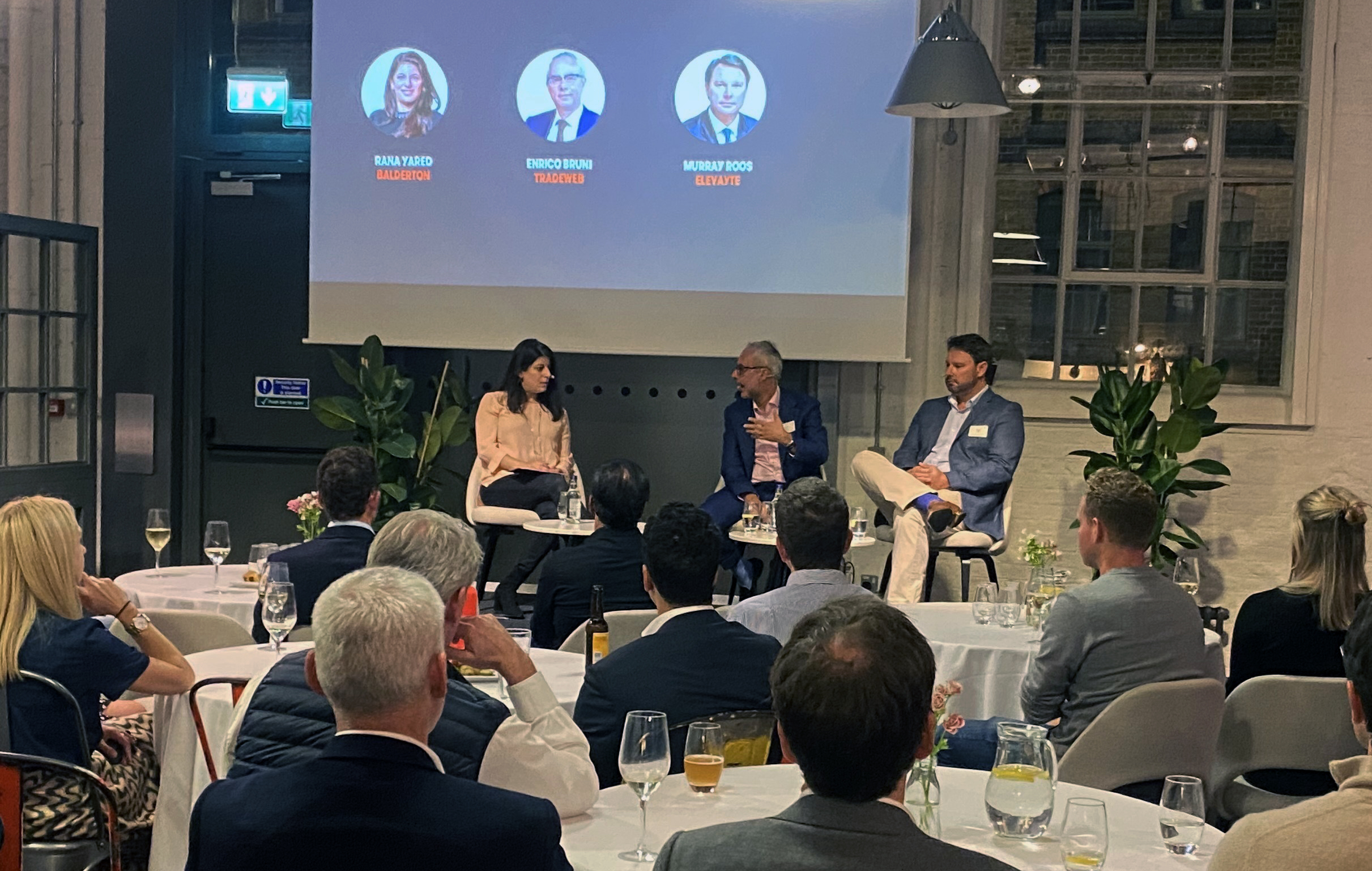From industry to infrastructure, our expert panel covered a broad range of topics as they unpacked past and current trends in capital markets and gave their predictions for the future.
Here are some of our key takeaways, but you can listen to the full conversation below:

One example of this, which Enrico mentioned, is the ‘Battle of the Bund’, which saw the trading of German government bonds (one of the largest markets in the world) shift from London to Frankfurt in less than a decade. This is a great case study of how markets can be tipped away from their incumbents — Deutsche Terminboerse (the ancestor of Eurex) brought an electronic format to bunds futures, providing cost advantages and the ability to attract orders from anywhere in the world.
The migration away from the LIFFE trading floor in London was not foreseen, and it took time, but it was the combined power of new technology, regulation, and commercial mechanisms, by network effects of financial markets that made it happen.
Fast forward to today, and Murray reckons we are overestimating the short term impact of the consumerisation of capital markets, which is in reality progressing quite slowly. He foresees a similar tipping point technologically, regulatory and culturally that will eventually result in a binary change. The layers of consumer technology are now coming in quick, signalling a tipping point in the next few years.
Rana points out that many of the most important back-end layers of previous capital markets innovation cycle have historically been in Europe, demonstrating the opportunity for capital markets in the continent.
Looking ahead, Enrico touches on the shift of execution from humans to machines and the two main factors driving this transition. The first is leveraging data to help derive price levels and the second is improving the interface for interaction with markets, which will drive a change in the skill set required on a trading desk.
The efficient and cost-effective use of data is a key driver of improvements for adaptive trading systems , adds Murray, who is most excited by the democratisation of data. A shift in who is able to leverage and draw meaningful conclusions from data will accelerate progress via data driven decisions being made by everyday practitioners, with significant impacts for the entire sector.
The private equity markets are becoming more mainstream, with volume outpacing public markets, but there are still many inefficiencies in sourcing and liquidity. Murray believes that DLT will be a catalyst for this being solved, and that the traction private markets are getting with regulators will also be a huge driver in making this long awaited change.
Meanwhile, Enrico points out that one of the most important markets, repo financing, is also one of the most backwards, with most of the process still being very manual and expensive today. The current macro environment is amplifying the importance of this market, which should drive a much needed change. Again, DLT will be a transformational technology in this market.
Sign up for our newsletter to stay up to date on news from Balderton, and our portfolio.